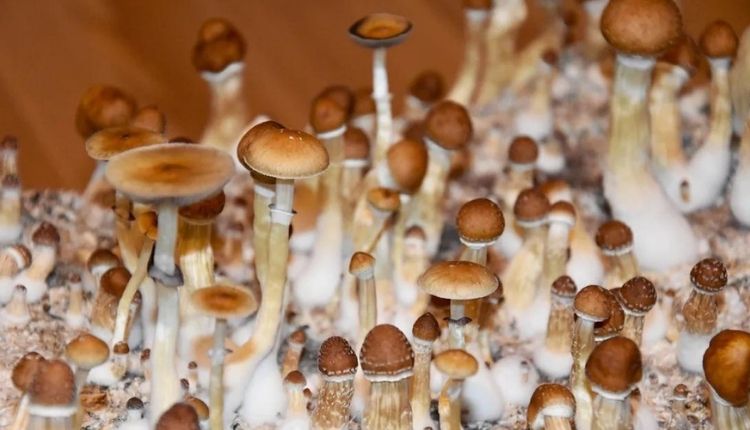
Exploring the Essence of Poetry: Understanding the Poet’s Craft
Poetry, a timeless and evocative form of artistic expression, has been an integral part of human culture for centuries. At the heart of this enchanting literary tradition is the poet, a visionary wordsmith who weaves the tapestry of emotions, thoughts, and experiences into the delicate fabric of language. To delve into the essence of a poet is to embark on a journey through the realms of imagination, language, and the human condition.
Defining a Poet
At its core, a poet is an individual who possesses a unique ability to distill the complexities of the human experience into carefully chosen words and rhythms. Unlike prose, which often prioritizes clarity and straightforwardness, poetry seeks to engage the reader on a more visceral and emotional level. A poet crafts language with a heightened sensitivity to sound, imagery, and symbolism, creating a form of communication that transcends the ordinary.
The Art of Language
One of the distinguishing features of a poet is their mastery over language. Poetry is not merely a tool for communication but a medium for exploration and experimentation with words. Poets use language as a palette, selecting words for their nuanced meanings, connotations, and sounds. This deliberate choice of language allows poets to evoke emotions, paint vivid pictures, and convey complex ideas in a condensed and impactful form.
The poet’s artistry extends beyond the literal meaning of words. Metaphor, simile, and symbolism are among the many tools in a poet’s arsenal. Through these devices, poets infuse their work with layers of meaning, inviting readers to interpret and engage with the text on a deeper level. The power of a poet lies not only in what is said but also in how it is said.
Imagination and Creativity
A poet is, at their essence, an imaginative soul. The creative process involves tapping into the vast reservoir of human experiences, dreams, and emotions. Through the lens of imagination, poets transform the ordinary into the extraordinary, finding beauty in the mundane and meaning in the abstract.
The act of writing poetry is an exploration of the poet’s inner landscape. It requires a willingness to navigate the complexities of the human psyche, confronting both light and shadow. In this process, poets often grapple with the ineffable, attempting to articulate the unspoken and illuminate the obscure corners of existence.
Poetry as Reflection
Poets are often regarded as keen observers of the world around them. Through their verses, they reflect upon the human condition, society, nature, and the interconnectedness of life. The act of reflection allows poets to distill universal truths from personal experiences, creating a bridge between the individual and the collective.
Moreover, poetry serves as a mirror that reflects the cultural, historical, and social contexts in which it is created. Poets become chroniclers of their time, capturing the spirit of an era and offering insights into the collective consciousness of society. In this way, the work of a poet transcends the boundaries of individual expression, becoming a shared reservoir of human wisdom.
The Role of Emotion
Emotion is the lifeblood of poetry. A poet is attuned to the ebb and flow of human feelings, harnessing the power of emotion to convey the ineffable. Whether exploring the depths of despair, the heights of joy, or the nuances of love, poets use their craft to encapsulate the spectrum of human emotions in words.
Emotional resonance is what makes poetry a deeply personal and universal form of expression. A well-crafted poem has the ability to resonate with readers on a profound level, creating a connection that transcends time and cultural boundaries. Through the language of emotion, poets forge a bond with their audience, inviting them to share in the richness of the human experience.
The Poet in Society
Poets have historically played a vital role in shaping cultural and societal narratives. Through their words, they have challenged conventions, questioned authority, and given voice to the marginalized. The poet is often a societal observer, providing critical commentary on the human condition and inspiring introspection.
In times of social upheaval, poets become agents of change, using their verses to advocate for justice, equality, and compassion. The power of poetry to inspire action and provoke thought is a testament to the enduring influence of the poet in society.
Poetry Across Cultures
While the essence of a poet remains a constant, the form and function of poetry vary across cultures. Different traditions, languages, and historical contexts give rise to diverse poetic styles and themes. From the haikus of Japan to the ghazals of Persia, and the sonnets of Shakespeare to the spoken word poetry of contemporary urban culture, poets adapt their craft to the cultural tapestry that surrounds them.
The act of translation itself becomes a delicate dance, as translators strive to capture not only the literal meaning but also the cultural nuances and poetic sensibilities of the original work. Through this exchange, poetry becomes a bridge that connects disparate cultures, fostering understanding and appreciation across linguistic boundaries.
The Evolution of Poetry
As society evolves, so too does the nature of poetry. While the essence of a poet remains rooted in the exploration of the human experience, the forms and styles of poetry undergo continual transformation. From the structured rhythms of classical verse to the free verse of the modern era, poets adapt their craft to the changing currents of literary expression.
Technological advancements have also expanded the avenues through which poetry is disseminated. The internet and social media provide platforms for poets to share their work with a global audience instantly. This democratization of poetry allows for greater diversity of voices and a more inclusive representation of the human experience.
Conclusion
In the tapestry of human expression, the poet stands as a master weaver, intertwining words, emotions, and imagination to create a rich and textured fabric of meaning. The essence of a poet lies in their ability to transcend the ordinary, to distill the complex, and to articulate the ineffable. Whether reflecting the individual journey or speaking to the collective consciousness, the poet serves as a guide, inviting readers to explore the depths of the human experience through the prism of language and creativity. In celebrating the essence of the poet, we celebrate the enduring power of poetry itself—a timeless art form that continues to illuminate, inspire, and connect us across the vast tapestry of human existence.




